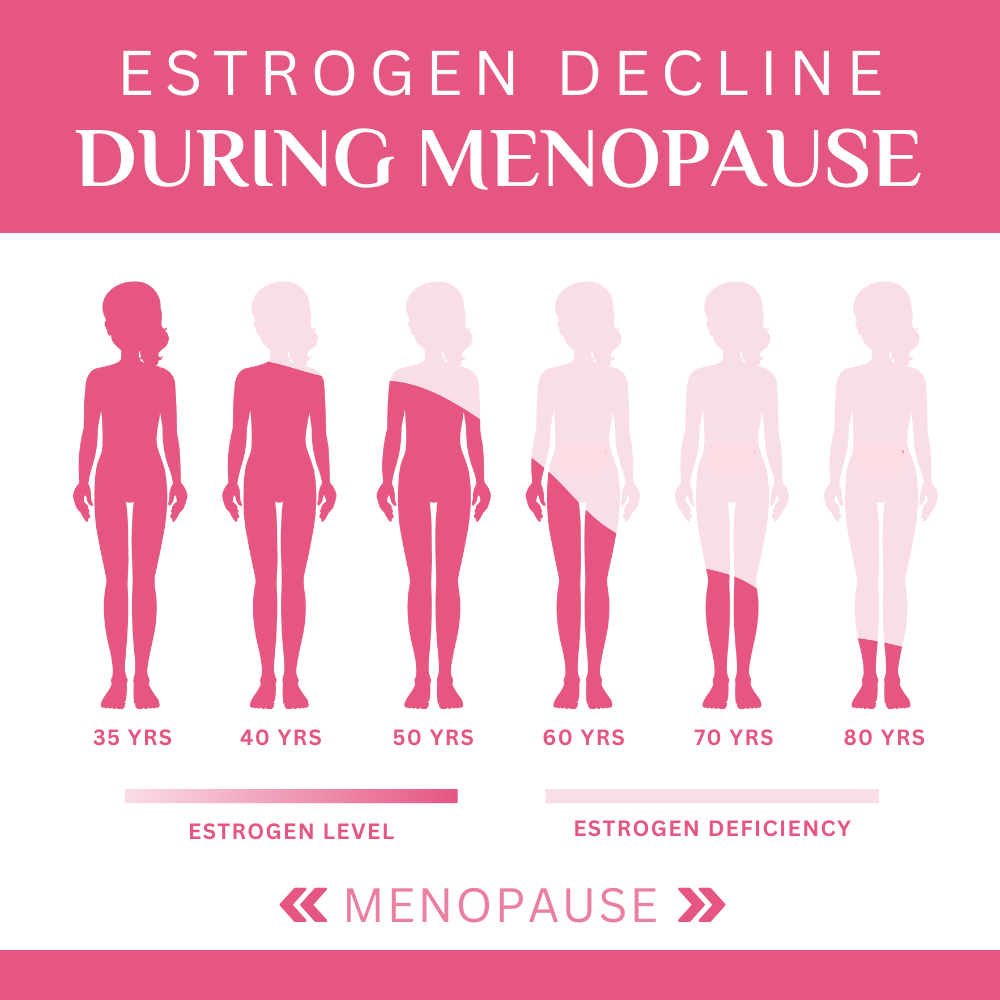Table of Contents
Toggle5 Tips for a Healthy Menopause – Navigating the changes of menopause can be challenging, but with the right strategies, this transition can be a positive and empowering experience. This comprehensive guide will provide you with 5 proven tips to support your physical, mental, and emotional well-being during this important stage of life.

Introduction to Menopause
Menopause is a natural biological transition that every woman experiences as she ages. It marks the end of a woman’s reproductive years, when her ovaries stop producing eggs and her body produces less of the hormones estrogen and progesterone. This hormonal shift can lead to a variety of physical and emotional changes, including hot flashes, mood swings, sleep disturbances, and changes in sexual function.
Understanding the intricacies of menopause is the first step towards embracing this significant phase of life. By learning about the causes, symptoms, and management strategies, women can navigate this transition with confidence and find ways to maintain their overall health and well-being.
5 Tips for a Healthy Menopause
Tip 1: Manage Hormonal Changes
Understand Hormonal Shifts
Menopause is marked by a gradual decline in the production of estrogen and progesterone. This hormonal shift can lead to a variety of symptoms, including hot flashes, mood changes, and vaginal dryness. Understanding these hormonal changes is the first step to managing them effectively.
Work with Your Doctor
Consult your healthcare provider to discuss treatment options for managing menopausal symptoms. They may recommend hormone replacement therapy, lifestyle changes, or other targeted therapies to help alleviate your specific concerns and maintain your overall health.
Tip 2: Maintain a Healthy Diet
Eat Nutrient-Dense Foods
A balanced diet rich in fruits, vegetables, whole grains, lean proteins, and healthy fats can help support your body during menopause. These nutrient-dense foods provide essential vitamins, minerals, and antioxidants to nourish your cells and reduce inflammation.
Manage Caloric Intake
As metabolism slows during menopause, it’s important to be mindful of caloric intake to maintain a healthy weight. Focus on portion control and choose foods that are filling and satisfying to support overall well-being.
Stay Hydrated
Proper hydration is crucial during menopause, as hormonal changes can lead to increased dryness. Aim to drink plenty of water throughout the day and incorporate hydrating foods like fruits and vegetables into your diet.
Exercise Regularly
Cardiovascular Health
Regular aerobic exercise, such as brisk walking, jogging, or swimming, can help improve cardiovascular health and reduce the risk of heart disease, a common concern during menopause. This type of exercise also helps manage weight and boosts overall energy levels.
Strength Training
Incorporating strength training exercises, like weightlifting or resistance bands, can help maintain muscle mass and bone density, which tend to decline during menopause. This can also improve balance and flexibility, reducing the risk of falls and injuries.
Mind-Body Practices
Activities like yoga, Tai Chi, or Pilates can be particularly beneficial during menopause. These practices combine physical movement with breath work and meditation, helping to manage stress, improve sleep, and promote overall well-being.

New Solution Melts Menopause Fat Fast
Tip 4: Manage Stress
Identify Stress Triggers
Understand the specific situations, emotions, or factors that contribute to your stress during menopause. Being aware of your stress triggers can help you develop coping strategies to address them proactively.
Practice Relaxation Techniques
Engage in mindfulness meditation, deep breathing exercises, or gentle yoga to help calm your mind and body. These practices can reduce the physical symptoms of stress and promote a sense of overall well-being.
Prioritize Self-Care
Make time for activities that bring you joy and relaxation, such as reading, taking a warm bath, or spending time in nature. Engaging in self-care can help you manage stress and maintain a positive outlook during this transition.
Tip 5: Get Enough Sleep
Prioritize Sleep
Adequate sleep is crucial during menopause, as hormonal changes can disrupt your sleep patterns. Make sleep a priority by establishing a consistent bedtime routine and creating a restful sleep environment.
Manage Insomnia
If you experience insomnia or difficulty falling asleep, try relaxation techniques like deep breathing, meditation, or gentle yoga. Avoid caffeine, alcohol, and screen time before bed, as these can further disrupt your sleep.
Maintain a Schedule
Stick to a consistent sleep schedule, even on weekends, to help regulate your body’s circadian rhythms. Aim for 7-9 hours of quality sleep each night to support your physical and emotional well-being during this transition.
Stay Socially Connected
Maintain Friendships
Make time to regularly connect with friends and loved ones, whether it’s through phone calls, video chats, or in-person meetups. Strong social bonds can provide emotional support and help alleviate feelings of isolation during menopause.
Explore New Hobbies
Joining a new club, taking a class, or volunteering can help you meet like-minded individuals and expand your social network. Engaging in activities you enjoy can also boost your mood and provide a sense of purpose.
Embrace Community
Participate in local community events, support groups, or online forums dedicated to menopausal women. Sharing experiences and connecting with others who are going through similar transitions can help you feel less alone and more understood.

Embracing Menopause
As you navigate the journey of menopause, it’s important to approach this transition with an open and empowered mindset. Embrace the changes your body is going through, and focus on maintaining your overall health and well-being. Remember, menopause is a natural, inevitable phase of life that every woman experiences, and there are many ways to manage the associated challenges.
By implementing the 5 Tips for a Healthy Menopause outlined in this article, you can manage your menopausal symptoms, maintain your physical and emotional resilience, and emerge from this transition feeling stronger and more confident. Celebrate the wisdom and self-awareness that comes with this stage of life, and embark on the next chapter with a renewed sense of purpose.
If you enjoyed this content, be sure to also check out these articles
Best Natural Supplement for Menopause Relief: Hot Flashes, Night Sweats, and More

